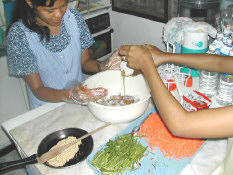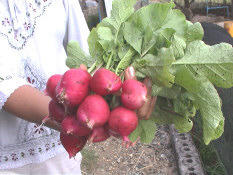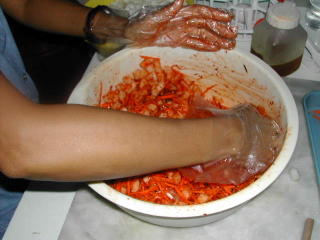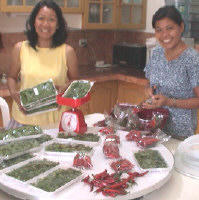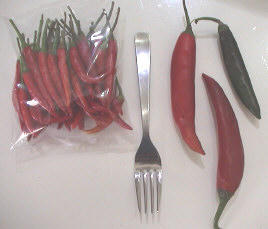 Metro Manila is one of the largest, most crowded, dirtiest, worst traffic cities on the planet.
Metro Manila is one of the largest, most crowded, dirtiest, worst traffic cities on the planet.  With 10 million people and only 1 million jobs, it is a place of great despair. But despite it all, most are oblivious to the poor quality of life and would not dream of living in the provinces. A world calss city with world class poverty.
With 10 million people and only 1 million jobs, it is a place of great despair. But despite it all, most are oblivious to the poor quality of life and would not dream of living in the provinces. A world calss city with world class poverty. And the people keep coming to settle and try their "luck" in the city. A few thousand people move here every day. Usually their skill set is limited and they can't compete in the job market they dreamed of. They don't find a niche. They end up with few options. Of course at $1.00 per day you can recycle the waste from the middle classes. These school teachers, office workers or government employees earn about $300.00 per month and are a wealth of waste, with their plastics, styro foam boxes and paper wraps from their expensive $2.00 lunches. The hard working father can even support 2-3 children if he hustles his cart.
And the people keep coming to settle and try their "luck" in the city. A few thousand people move here every day. Usually their skill set is limited and they can't compete in the job market they dreamed of. They don't find a niche. They end up with few options. Of course at $1.00 per day you can recycle the waste from the middle classes. These school teachers, office workers or government employees earn about $300.00 per month and are a wealth of waste, with their plastics, styro foam boxes and paper wraps from their expensive $2.00 lunches. The hard working father can even support 2-3 children if he hustles his cart. The traffic, smog and pollution become secondary in the daily task of getting a bus, finding parking or going to the air conditioned Mall. As each one pursues a career path they are sold a coping mechanism. It is marketed endlessly throughout the day on giant bill boards and droning electronic devices. Good cell phone reception and lots of movie and restaurant choices are some of the reasons they tell me "Manila has it all."
The traffic, smog and pollution become secondary in the daily task of getting a bus, finding parking or going to the air conditioned Mall. As each one pursues a career path they are sold a coping mechanism. It is marketed endlessly throughout the day on giant bill boards and droning electronic devices. Good cell phone reception and lots of movie and restaurant choices are some of the reasons they tell me "Manila has it all."
The tricycle is one of the best inventions for overcrowding. It allows up to 5 people to load up the 100cc Motorbike for economical transport. Getting one during rush hours or during a rain storm takes the fun out of it, but it can get through crowded streets that taxis and buses could never manage. And the growth will continue. As national government keeps propping up it's economy and printing more money, they strive to put the best press forward and suppress the rest.
 The building is very aggressive, with prime locations growing vertically at the expense of the infrastructure. Many multinationals are pulling out because of recent economic upheavals and political unrest. A recent rating put the Philippines as one of the most corrupt countries in the world. We've finished our necessary trip. We are glad to be going home to Palawan. And we are glad we can match our children at ICAB for adoptive families that will bring opportunity to the Filipino in years to come. And Manila just grew by a few more thousand today.
The building is very aggressive, with prime locations growing vertically at the expense of the infrastructure. Many multinationals are pulling out because of recent economic upheavals and political unrest. A recent rating put the Philippines as one of the most corrupt countries in the world. We've finished our necessary trip. We are glad to be going home to Palawan. And we are glad we can match our children at ICAB for adoptive families that will bring opportunity to the Filipino in years to come. And Manila just grew by a few more thousand today.










 Kimchi is a fermented vegetable dish that helps Koreans to get through the winter. Just like Germans make sauerkraut . Seems every culture that goes through winter tries to preserve or pickle fresh fruits and vegetables for the time between growing seasons.
Kimchi is a fermented vegetable dish that helps Koreans to get through the winter. Just like Germans make sauerkraut . Seems every culture that goes through winter tries to preserve or pickle fresh fruits and vegetables for the time between growing seasons.